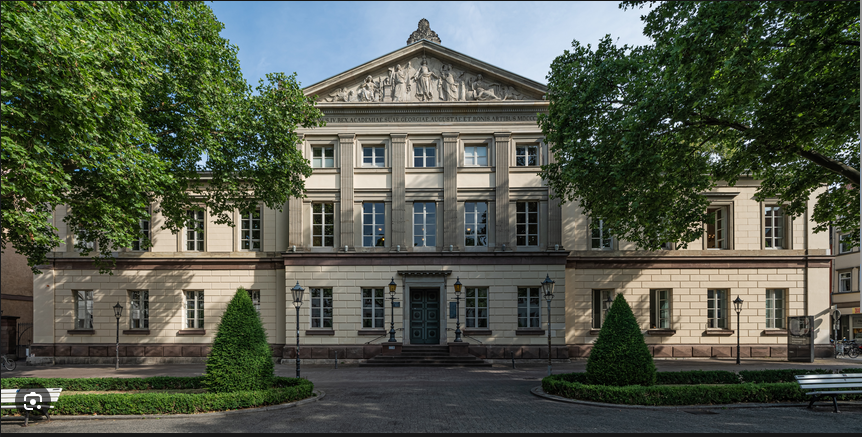Speaker
Description
Key words: transition, transformation, governance, barriers
Objective
Western food systems are highly productive but also face substantial sustainability challenges, including ongoing biodiversity loss, climate change, and diet-related diseases (El Bilali et al., 2021; Fanzo et al., 2021). These sustainability challenges find their origin in a series of connectivity problems, such as (Runhaar, 2024):
• A disconnect between food production and local and regional environmental conditions, resulting in pollution and biodiversity loss.
• A disconnect between food and feed production locations, leading to deforestation, climate change, and food insecurity.
• A disconnect between places where food is produced and where it is consumed, leading to an alienation of consumers with farmers and agricultural landscapes and their values.
• More generally, a disconnect between food prices and their societal costs, and a disconnect between actors that benefit from modern food systems and actors that are faced with their burdens.
Sustainable food system transformation therefore requires rethinking the physical, socio-economic, and institutional connections in food systems. Many farmers for instance are limited in their choices about what to produce, where, how, and for whom due to their dependency on large agrifood companies (Hendrickson, 2015; see also Williams et al., 2023). Community Supported Agriculture in contrasts brings together farmers and consumers and enables more sustainable food production at a local scale (Egli et al., 2023). And agroecology, regenerative agriculture, and ‘nature-inclusive’ agriculture aim to reconcile food production with biodiversity, whereas agroecology also simultaneously aims to “empower[s] producers and communities as key agents of change” (Gliessman, 2020: 547). (Runhaar, 2024)
Establishing new connections and dismantling existing, unsustainable ones is necessary but problematic, because food systems are highly resistant to change (Oliver et al., 2018; Runhaar, 2021). The Dutch food system is exemplary in this respect. The ‘nitrogen crisis’ has been ongoing for almost 5 years now (Stokstad, 2019), putting a halt on new housing construction, infrastructural, and other projects. The Netherlands most probably will also face a ‘water crisis’ as the Water Framework Directive’s water quality objectives will probably not be achieved by 2027. This is to a large extent due to excessive nutrient and pesticides discharge from agriculture (Van Gaalen et al., 2020). But despite these pressures and even though in 2021 the then new national government committed to an ‘agricultural transition’ to address the ‘substantial challenges’ of biodiversity, climate, and water, which is repeatedly stated since , with a fund of almost 25 billion euro made available to support a transformation, the food system has remained unchanged. Intensive, high input-high output agriculture remains the default model, efforts to agree on a new perspective for Dutch agriculture have failed , and driving logics and power positions in agrifood value chains as well as agricultural policies have remained unchanged (e.g., Runhaar, 2022).
In this paper, we employ the Multi-Level Perspective (MLP) from sustainability transition studies to further our understanding of food system stability and change, focusing on the Netherlands.
Method
Within the MLP, regime change - substantial changes in “the semi-coherent set of rules that orient and coordinate the activities of the social groups that reproduce the various elements of sociotechnical systems” (Geels, 2011, p. 5) – is crucial to enable and promote fundamental change in systems such as food systems. Regime change can be triggered by macro-level developments at ‘landscape level’ (e.g., economic crises) or by alternative companies, practices, or innovations (‘niches’) that challenge incumbent industries and other regime actors (Geels, 2011). Increasingly, the literature considers the deliberate decline of unsustainable regime configurations by means of targeted interventions into the stability of such regimes rather than disruption by novelty as an emerging frontier for the study and governance of sustainability transitions (Rosenbloom and Rinscheid, 2020).
We will address the following research questions:
1. What obstacles, particularly stemming from the incumbent regime, hinder the uptake and upscaling of niche innovations?
2. What is needed and what is done to overcome obstacles, and to what extent and how do niche innovations contribute to regime destabilisation?
3. What mechanisms keep the incumbent food regime in its current state and hinder, but potentially also facilitate, regime change? Particularly, to what extent and how have landscape pressures triggered regime change?
We will combine insights from Runhaar’s ongoing research on the Dutch food system since 2015 (e.g., Runhaar et al., 2020), (interim) findings from a recently finalised PhD project (Van Oers) and four ongoing PhD research projects (Bello Cartagena, Offringa, Pustilnik, Van Doorm), and one ongoing master thesis research project (Remorie). All these projects focus on sustainable food system transformation in the Netherlands from different perspectives and covering different agricultural sectors.
Findings/conclusion
For question 1, we will draw from Bello Cartagena’s research on agroecology in the Netherlands and the role of networks in building capacities to nurture and upscale agroecological practices, as well as from Pustilnik’s and Remorie’s research on the adoption of herb-rich grasslands in dairy farming, and Van Doorm’s research on new regional governance arrangements for accelerating the mission towards circular agriculture. Interim findings related to question 2 will be presented from Bello Cartagena’s research and from Van Oers’ research on unlearning as a strategy for agricultural sustainability transformation in the Netherlands (Van Oers, 2024). Some preliminary findings regarding question 3 will be drawn from the research by Bello Cartagena, Van Doorm, and Pustilnik, and from Offringa’s research on promoting intensified contribution from the agricultural sector to the Water Framework Directive water quality objectives, and Runhaar’s earlier research on the promotion of grazing practices in dairy farming.
